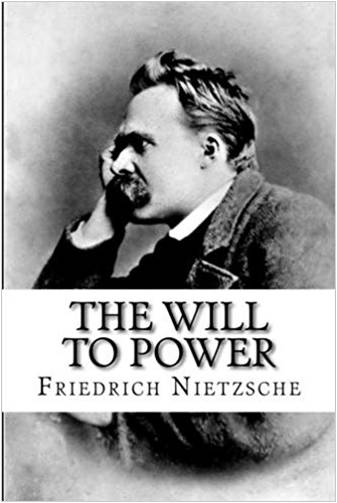Last week (Blog #10), we interrupted our “regularly scheduled” blog topics to trace the roots of our cultural conflict over marriage, sex, and gender. We did a quick tour through Nominalism – which emphasized God’s BIG Will – as well as Descartes’ split between language and reality and his jettisoning of final cause (i.e., what things are created for). We wrapped up with Bacon (well, not literally!) and his development of the experimental method, which restricted scientific knowledge to how things work so that we can be “lords and masters of nature.” Boiled down to its essence, this historical trajectory traces the relationship between “power” and “nature.”
At the end of last week’s blog, I encouraged you to look for how this Nominalist-Baconian approach of exercising our BIG WILL over created realities, including the body, is manifesting itself in contemporary culture. Here’s a great example a friend sent me – the UK reported a 4,415% increase last year in the number of girls being referred for transgender “transitioning” treatment. This is shocking. However, UK Prime Minister Theresa May considers this a sign of progress as her goal is to “de-medicalise the process for changing gender, because being trans is not an illness and it shouldn’t be treated as such” (see link).
The timing of this news article allows us to nicely “transition” to another British figure, Charles Darwin, who occupies the next slot in our brief historical review.
In the 19th century, Charles Darwin (1809-1882) continued to push forward man’s domination over nature through his theory of natural selection and evolution. John Dewey made an incisive observation about Darwin’s thought when he wrote, ‘”If all organic adaptations are due simply to constant variation and the elimination of those variations which are harmful in the struggle for existence that is brought about by excessive reproduction, there is no call for a prior intelligent causal force to plan and preordain them.” (The Influence of Darwin on Philosophy by John Dewey)
In case you didn’t quite catch his argument, Dewey is underscoring how Darwin’s “evidence” of natural selection eliminates the need for God. Since we can now explain the emergence of complex living organism from a primordial soup of electrified chemicals,* God is no longer needed as a causal explanation.
Darwin’s direct attack on God escaped me for many years until a speaker called my attention to the title of Darwin’s famous book, Origin of the Species. Darwin’s intention was to explain not only how things work (building on Bacon and the scientific method), but where things come from. He posited an origin of the species apart from God. The origin of man is based in random material causes based on survival of the fittest. The gutsy survivor gene and its ability to adapt is the new god, the new cause or origin of our existence. Thus, Darwin introduced another disastrous split into Western history: the split between God and our human origin.
Before we go on, let’s summarize DBD (Descartes, Bacon, and Darwin) whose engines run on the fuel of Nominalism: 1) We have arrived at an atheistic, mechanistic view of the world. 2) The way things are is the result of random chance, not Divine Providence. 3) Material things evolved one way, but they could have evolved another way. 4) The structure of creation is arbitrary; there is no intrinsic reason or logic for why things are the way they are. 5) As godlike creatures endowed with reason (rationality), we have power over nature to combine the parts however we want because the parts don’t have any purpose or meaning in and of themselves. 6) There is no formal or final cause to the world or the things in the world (including the human animal); only efficient cause and material cause exist. This leads to the ascendency of the technological mindset: How does this work and what can I do with it?
Finally, we’ve arrived at the other N – Friedrich Nietzsche – and the (M) – Karl Marx.
Friedrich Nietzsche (1844-1900), like Descartes, is best known for an oft-repeated phrase: “God is dead, and we have killed him.” How many of us have heard the first part of this phrase over and over again – “God is dead”? But it’s the second part that is spine-chilling: “And we have killed him.”
For Nietzsche, killing God was an act of survival, of gutsy bravery – almost like slaying an evil dragon to liberate the helpless princess. Why do I say this? Because the concept of God circulating in Germany during Nietzsche’s time rendered the human person helpless, frail, pathetic. Everything good, noble, and powerful in man had been projected onto God, leaving human nature grossly feeble and saccharinely dependent on God. As the thinking went, the weaker man was perceived to be, the greater glory God received by rescuing man and demonstrating His mercy. In Nietzsche’s mind, retrieving human dignity required slaying this God-fantasy and wrestling back responsibility for one’s own life and actions.
The title of his famous book, Will to Power, captures well the unavoidable task at hand: man must liberate himself from ideological slavery, take back his most-prized possession of freedom, and exercise his will to power. In another of his famous writings, Beyond Good and Evil, Nietzsche says succinctly, “A living thing seeks above all to discharge its strength – life itself is will to power…” (BG&E, no. 14).
Nietzsche is incredibly appealing to the modern mind (and will). In, fact, the modern mind has in many ways been formed by Nietzsche without even realizing it. Freedom has been reduced to “freedom of choice,” which means my “right” to discharge my “strength” over my own life, body, and choices regarding love and sexuality without any interference from this “fantasy God” or his minions (i.e., the Church and the Western moral tradition) who stubbornly refuse to “grow up,” face the brute fact that God is dead, and assume responsibility for their own lives.
In reading Beyond Good and Evil, I crashed into Nietzsche’s insistence that human intelligence has moved beyond good and evil to recognize “there are only degrees and many subtleties of gradation.” (BG&E, no. 24) Degrees and subtleties of gradation? Isn’t this precisely the language used to describe gender as a spectrum, as “beyond” male and female? A quick search on the Internet immediately proved my point: A course offering popped up entitled, “Teaching Beyond the Gender Binary in the University Classroom.” This is straight-up Nietzsche!
If we think about it, our Nominalism-to-Nietzsche post-modern culture hit upon a brilliant strategy: Get rid of human nature and you get rid of good and evil. Why? Because “good” and “evil” are dependent upon the existence of human nature. A human action or cultural environment is good if it moves human nature toward its full flourishing and actualization. A human action or environment is evil if it hinders or harms human nature in its movement toward full flourishing and actualization.
However, once human nature no longer exists – or exists only as raw material awaiting my “will to power” to shape and construct it – then it’s each person’s “right” to decide his own “subtlety of gradation” without interference from the outside. The purpose of law is no longer to guide and shape virtuous citizens in a political culture based on the common good and authentic human flourishing. Rather, law becomes the necessary defender of each individual’s “right” to choose one’s own self- expression of love, marriage, gender, and meaning – even of life and death (thus abortion, assisted suicide, and test-tube babies become individual “rights” as well).
I know this probably feels more like a philosophy course than a TOB blog, but I hope you can hang in there for one last step: Karl Marx. Although Karl Marx (1818-1883) slightly precedes Nietzsche, Marx’s current influence on Western politics is glaringly active so I’ve put him last.
I remember being taught, in junior high, Marx’s famous one-liner, “Religion is the opiate of the people.” Well, since “God is dead, and we have killed him” and atheistic evolution reigns in education, this Marxist teaching no longer carries such heavy weight. Instead, his power-oriented dialectic of the “oppressors” and the “oppressed” is experiencing a vigorous re-incarnation through “identity politics.”
In Marxist thought, the privileged class uses its power to oppress those who are considered of lesser value and dignity. As a result, the oppressed class must rise up and overthrow the “ruling” or privileged class through revolutionary means. Following Hegel’s historical determinism, Marx justifies this method of revolutionary change since the swing of the pendulum is inevitable. It is the way “history” works itself out to arrive at a more equitable balance, at a classless society of equality (“inclusivity”?) where distinction and hierarchies are fiercely eliminated to secure an “equal outcome” for all.
In this process of stripping power from the oppressors, they (the oppressors) lose all their civil rights, including freedom of speech, because their power is used only to dominate the oppressed class and therefore the oppressors must be silenced and overthrown.
Ding! Ding! Ding! Suddenly I understood how the Marxist framework of “power relationships” provides the current rationale for lawsuits and economic sanctions levied against florists, cake bakers, religious orders, farmer’s market vendors, and, of course, Jordan Peterson. Those who embrace God’s original design for mankind in the body as male and female, and who stick unyieldingly to His design for marriage between one man and one woman, are considered the oppressors. We are regarded as hateful, bigoted, racist bullies, and we need to be silenced through legal and economic sanctions because we use our “power” and “privilege” against the oppressed class of LGBTQ+ individuals. We lose our freedom of speech, freedom of conscience, and freedom of religion because these are but evil tools employed to keep ourselves in power and to deny others their “individual” rights.
Phew! We made it. Although, I must admit, I left out huge chunks of influential thinkers including the British school of utilitarianism (Bentham and Mill) and sentimentalism (Adam Smith and Hume) along with modern expressions of what could be termed a “philosophy of sexuality” (Foucault and Derrida).
My hope, though, is that we don’t miss the forest for the trees. My intention was to show how the emergence of identity politics and gender fluidity didn’t just happen overnight. It’s been brewing for centuries and therefore is more deeply entrenched in our cultural psyche than we might think.
Even more, I pray the fierce re-emergence of Marxist categories of “power relationships” and the attempt to silence a Christian understanding of sexuality will be the joyful occasion for a new articulation of the meaning of male and female drawing from St. John Paul II’s Theology of the Body and his language of total, self-giving love (and not power or God’s BIG WILL). As you digest all this, please remember, you are not a bully, but a gift!
(*see The Radiance of Being by Stratford Caldecott, p. 44)
© Katrina J. Zeno, MTS




